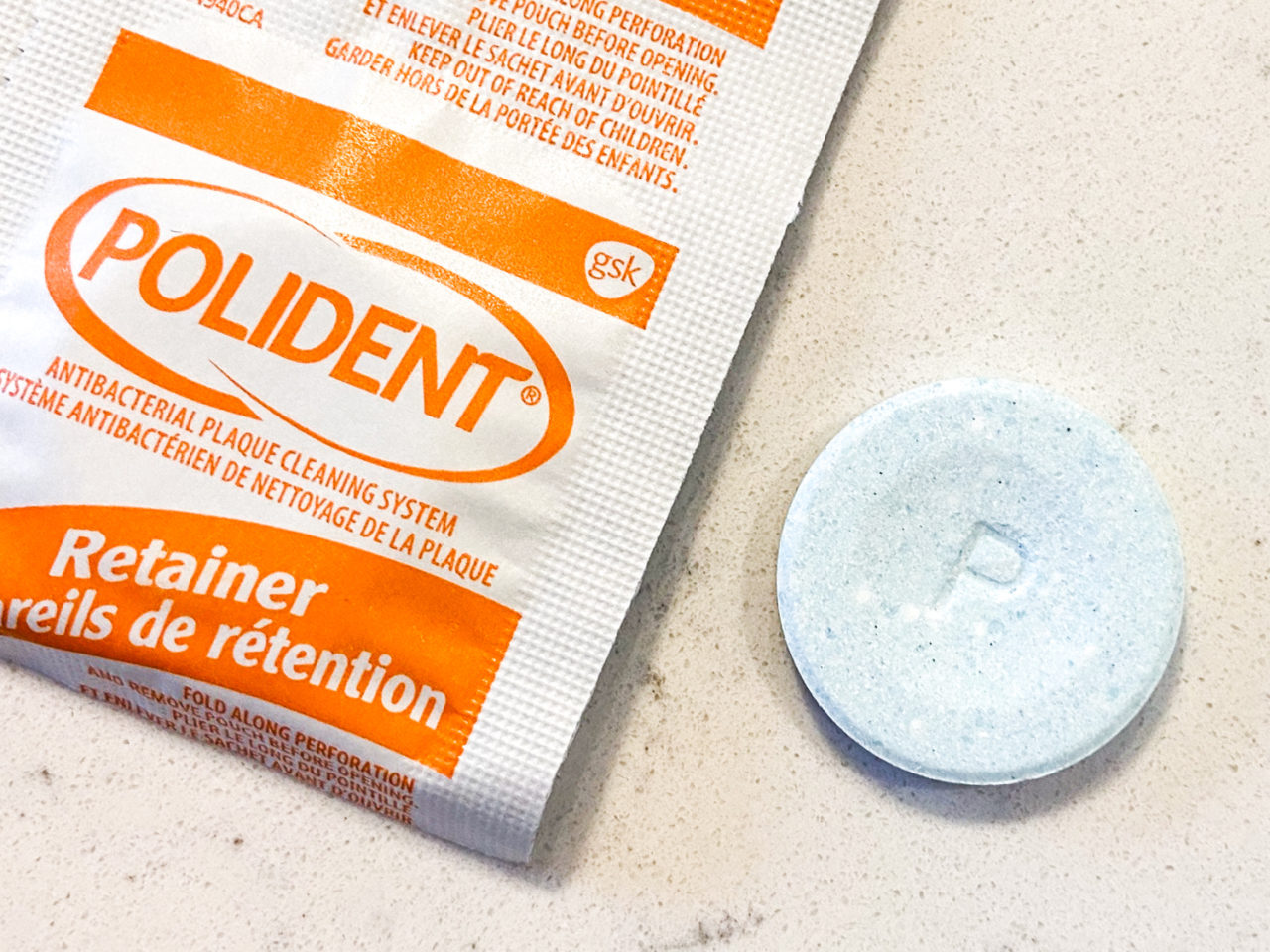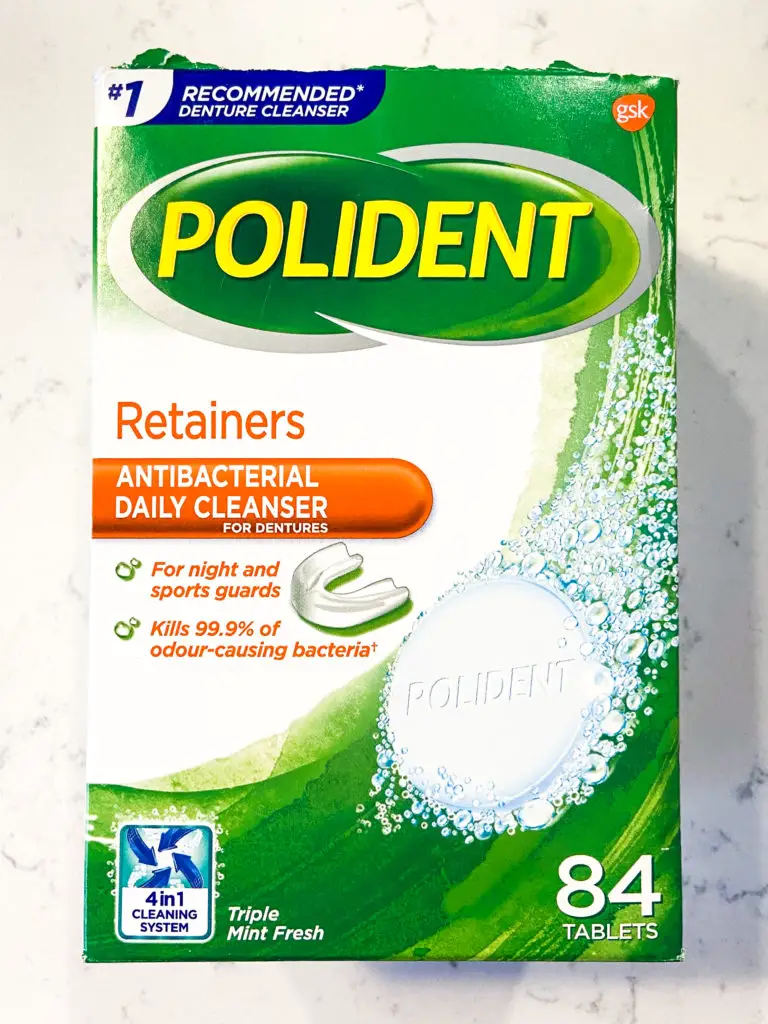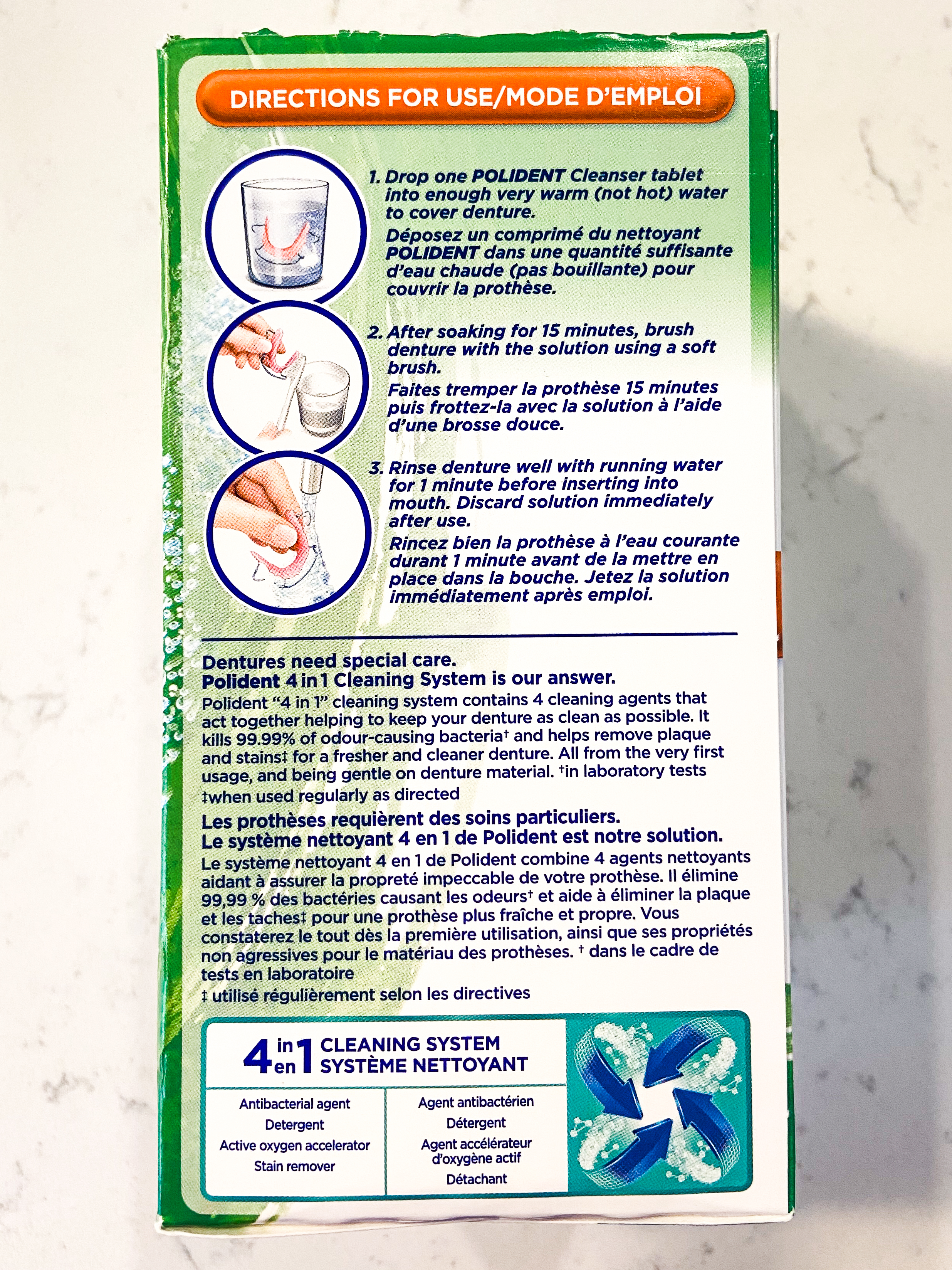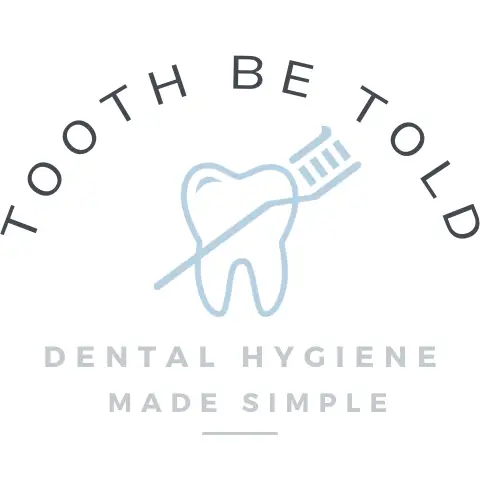
I wear a night guard every night, and every day I preach their importance to preventing damage to the teeth, gums, bone and jaw joints to my patients. I have patients who come in with their night guards for me to inspect, and I primarily discuss how and how often my patients should be cleaning their night guard.
Dental night guards need to be cleaned with a soft-bristle toothbrush and lukewarm water after every wear. Use a cleaning solution or tablet at least once a week, up to once a day if required. The amount of build-up, wear and tear, and staining on the night guard may warrant more frequent cleaning.
In this post, I go over how often night guards should be cleaned in more detail, why using specific agents to clean them is essential (and what using the wrong things can do to the night guard, resulting in them breaking down and failing faster).
I also explain step-by-step how to use the different cleaning solutions/tablets that are safe to use on dental night guards.
The information I give you in this post will extend the life of your night guard, saving you money in the long run because you won’t have to replace it as often.
Why do you need to clean your night guard everyday?
Night guards need to be cleaned with a soft toothbrush and lukewarm water every day or after every wear. Doing so will reduce bacteria and prevent a build-up of calculus (tartar), gingivitis and periodontitis (gum disease), cavities, bad taste, odour, mould, mildew, and discolouration.
Bacteria can be both good and bad. Our mouths are home to over 700 species of bacteria, equalling about 6 billion individual bacteria. That’s a lot!
With our oral hygiene routines of flossing and brushing, we aim to maintain a healthy amount of bacteria to reduce infection, inflammation and cavities.
By cleaning your night guard regularly and effectively, you reduce the number of bacteria reintroduced to your mouth every time you put your night guard back in your mouth.
Taking care of a nightguard properly will maintain the integrity of the material it’s made out of, resulting in fewer bacteria, more resistance to wear, and having a night guard that lasts a long time.
Read Now: How Long Do Dental Nightguards Last For? Hygienist Explains
Very important:
Do not use toothpaste as it may contain abrasives that damage the night guard and promote bacteria growth.
Do not use mouthwash as it will degrade the material quickly. Especially mouthwash that contains alcohol.
Read Now: Is a Top or Bottom Night Guard Better? Hygienist Explains!
Below is how you should clean your night guard daily/after every use;
1. Rinse immediately
After taking your night guard out of your mouth, rinse it under lukewarm water. Avoid hot water as it can soften and damage the integrity of the material.
2. Brush with a toothbrush
Use a soft-bristled toothbrush to brush every surface of your night guard. You don’t want to leave any area unbrushed. Using a soft-bristled toothbrush is essential to prevent scratching the night guard (scratches can harbour more bacteria), and the soft bristles will be able to bend and contour around the night guard and clean it very well.
3. Dry thoroughly
After brushing every surface of the nightguard, gently jiggle the nightguard over the sink to get off the excess water. Put your night guard in the case with the lid open so that it can dry thoroughly. Letting your night guard dry quickly will prevent excess bacteria from reproducing and mould/mildew from forming.
4. Store in a case
When the nightguard is dry, you can close the lid to the case. Using a case with a few holes is best, just in case there is any moisture still on the night guard or case, it will ensure proper drying.
You don’t need an expensive case, just one that has a couple of holes in it to ensure drying. Below is a case similar to what I use for my night guard and retainers, linked on Amazon;
Dental Mouthguard Container with Vent Holes
Your storage container should be cleaned as well, at least every couple of days. You can clean it with soap and water. Be careful; not all cases are safe to go in the dishwasher as some can melt.
5. Deep cleaning/soaking
I clean my night guard at least once a week in Polident tablets. Some people may say it is okay to do it just once a month, but I am pro-prevention. I think doing a deep clean/soak should be done at least once a week.
If you are more prone to build-up on the teeth, inflammation/gum disease, and cavities, I suggest using the tablets more than once a week and even doing them once a day.
It is imperative to NOT soak your night guard for more than one hour as it can start to break down the material.
Pets LOVE night guards. Make sure to keep your oral appliance out of reach of pets so they don’t chew or swallow it!
What is the best product to clean a dental night guard with?
The best product to clean a dental night guard is tablets or crystals made for night guards and retainers. Vinegar and hydrogen peroxide can be used, soaking for 30 minutes. Avoid toothpaste as it can be abrasive and damage the night guard and avoid mouthwash. Do not exceed one hour submerged.
The product that I use is Polident for retainers/nightguards. I clench and grind my teeth, and I had braces, so I wear both a night guard (on my bottom teeth) and a clear retainer (on my top teeth). So these tablets work for both oral appliances.
You don’t need to use the Polident brand, as many other great products are on the market. I buy it because it’s convenient for me to purchase and trust the brand. Below I will link to Amazon the products I recommend to use, including Polident;
Polident ProGuard and Retainer Cleaning Tablets




Fresh Guard Soak by Efferdent, For Guards, Retainers & Clear Braces



How do you clean a night guard with Polident/night guard tablet?
Below are the step-by-step instructions for using night guard cleaning tablets;
- Place your night guard in a glass.
- Fill the glass with warm water to cover the night guard completely. (Do not use hot water as it will warp and disfigure the night guard).
- Drop in night guard cleaning tablet.
- Allow the night guard to soak for at least 15 minutes, but do not exceed 1 hour.
- Remove night guard from the cup and brush with dedicated toothbrush (do not use your toothbrush you use in your mouth).
- Rinse under water for about 1 minute to ensure all the solution has been rinsed away.
- Let night guard air dry completely.
Repeat this process at least once a week, or more frequently if needed! 🙂
Pro tip:
Bring your night gurd with you when you go to see your dentist or dental hygienist. They may be able to clean it for you with some stronger solution. As well, it will be inspected for any damage that may cause it to break in your mouth, or warrent its replacement.
Read Now: How Dental Hygienists Clean Teeth! What You Need to Know!

How do you clean a night guard with vinegar?
Submerge night guard in a bowl with distilled white vinegar. Allow to soak for at least 30 minutes, but do not exceed 60 minutes. After the night guard soaks, rinse it under warm water and allow for it to dry fully. If extra cleaning is needed, soak in 3% hydrogen peroxide with the same process.
White vinegar is the best type of vinegar due to its superior disinfecting and cleaning properties compared to other types of vinegar.
Using distilled white vinegar is natural way to clean a dental night guard if you are trying to avoid certain ingredients in products.
How do you clean a night guard with hydrogen peroxide?
To clean a night guard with hydrogen peroxide, submerge the night guard for at least 30 minutes and rinse thoroughly after. Do not soak for more than 60 minutes. Rinse with warm water and brush the night guard with a toothbrush if needed and allow the night guard to dry thoroughly.
Repeat this process at least once a month, or more frequently if needed.
Is it bad to wear a night guard every night?
Night guards that are professionally made should be worn every night and sometimes for day wear if clenching and grinding occur during awake hours. If night guards are not worn nightly, clenching and grinding can contribute to tooth wear, chipping, breaking, tooth loss, gum recession and bone loss.
If you are wearing an over the counter night guard that doesn’t cover the entire arch/biting surfaces of the teeth, wearing it every night may cause long term damage that will cost 1000’s of dollars to fix.
Can I soak my night guard in Listerine?
Dental night guards should never be soaked in Listerine, or any mouthwash, especially those containing alcohol. Soaking the night guard in mouthwash can stain the night guard and dry out and break down the material it is made out of, resulting in the need to replace it more frequently.
It annoys me that so many websites say it is okay to soak night guards in mouthwash. I have researched and read so much, and I wouldn’t ever want to recommend something to my patients that may damage their investment.
So please, stick to products specifically formulated to use with night guards.
Can I clean my night guard with toothpaste?
Do not clean night guards with toothpaste. Toothpastes have abrasive ingredients that degrade and scratch the material of the night guard, which will cause more accumulation of bacteria. It is best to use water and a toothbrush and use night guard cleaning tablets or crystals to deep clean.
I hope I have helped you find the answer you were looking for!
Have a wonderful day,
Holly 🙂
